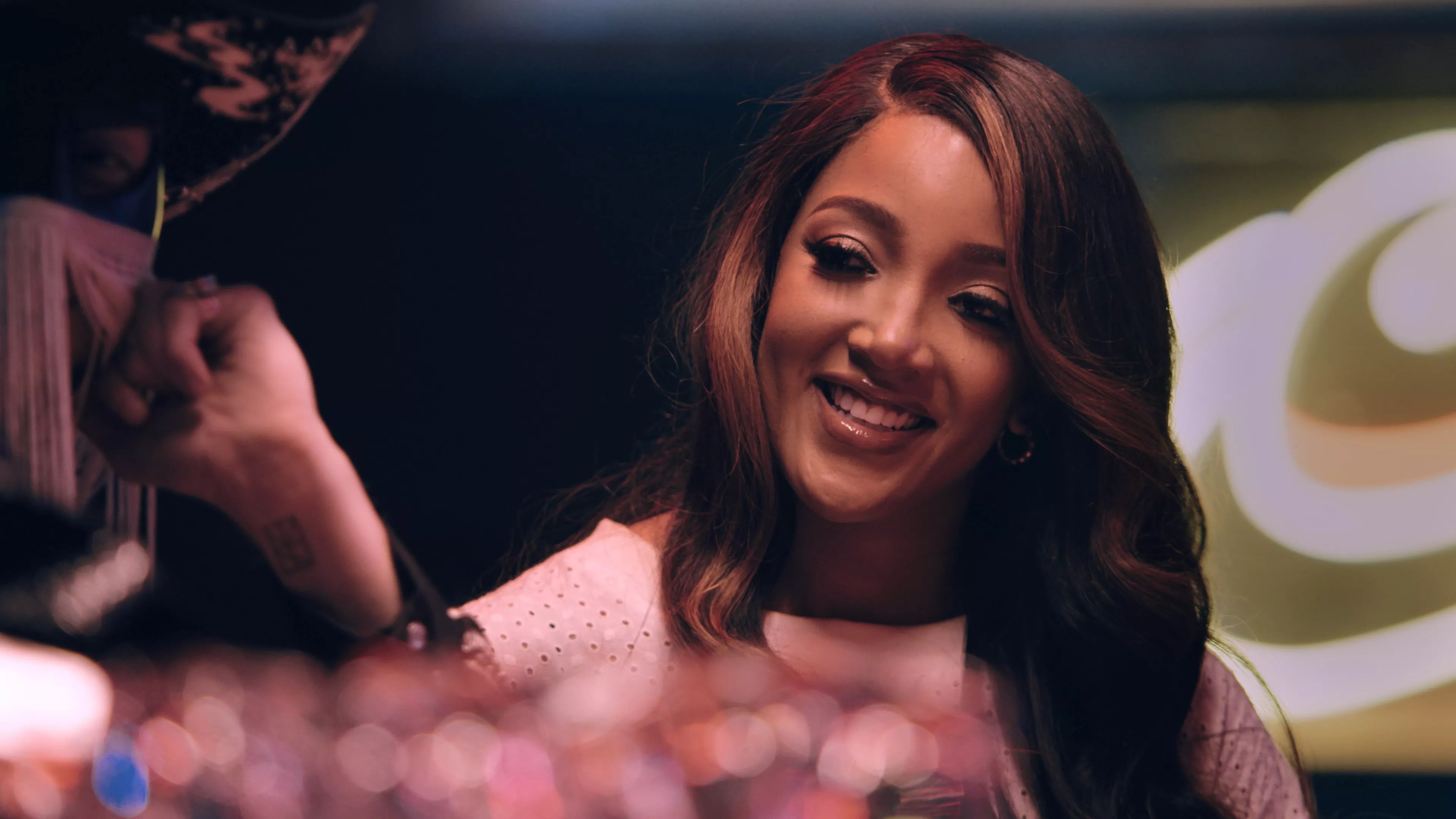
Courtesy of Apple TV+

Audio By Carbonatix
In Apple TV+’s new reality competition, My Kind of Country, three of the freshest artists in country music are on the prowl for the next country superstar. Over the course of the series, which premiered on March 24, a group of artists from around the world compete for a “life-changing” prize from Apple Music, as teased in the trailer, as well as global exposure via Apple’s TV and music streaming platforms.
The artists hail from various parts of the world and were hand-picked by the show’s scouts, country artists Jimmie Allen, Orville Peck and Arlington’s own Mickey Guyton.
Guyton grew up in North Texas, where some of her fondest memories include line-dancing at Cowboys Dancehall in Arlington and singing the national anthem at her high school basketball games. She manifested the latter of these two on a larger scale last year when she performed the national anthem at Super Bowl LVI. Two years prior, she made history as the first Black female solo artist to earn a Grammy nomination in a country category, as her politically charged anthem “Black Like Me” was nominated for Best Country Solo Performance.
As one of the key players in shifting the narrative around country music, Guyton is now ready to open the doors for other artists.
“In my own respective career, I have been trying to do everything that I can to hold the door open and give other people that may not have the opportunity to sing country music, the ability to sing country music,” Guyton says. “And when I got approached about the show, it was a no-brainer.”
On Guyton’s roster for My Kind of Country are Ashlie Amber from Las Vegas; The Betsies from Cape Town, South Africa; Wandile from Johannesburg, South Africa; and Chuck Adams from New York.
During Guyton’s showcase episode, the artists perform at Nashville’s famed 5 Spot venue for Emmy Award-winning musical director Adam Blackstone. Over the course of the series, the contestants will attend workshops, fine-tune their sound and receive guidance from country stars and industry veterans.
“We went and found these contestants,” says Guyton. “We not only found them, but we really invested our hearts into them, and we wanted to see into their minds and their souls. You get to see that, and I hope people take away [from the show] that country music is a global genre. I hope this opens people’s minds that there are opportunities here and that we can be that beacon for them.”
Guyton herself has dealt with her fair share of industry games. She signed to Universal Music Group’s Capitol Records Nashville in 2011, but her rise didn’t come quickly. In a 2020 interview with CNN, Guyton said that early on in her deal, she was advised not to make her songs sound too close to R&B. She released two EPs between 2014 and 2015, but it wasn’t until 2021, a decade after signing her record deal, that she released her full-length debut album Remember Her Name.
Despite the trying times she faced coming up, she never lost sight of her dreams. And now, with her platform, she wants to encourage aspiring artists to keep going and to also remain principled.
“My advice to young country artists is to know exactly who you are as an artist, know what you want to say as an artist, and to open your mouth and to speak up for yourself,” Guyton says. “Closed mouths don’t get fed, so you’ve got to really get out there and put your best foot forward and fight for yourself.”
Country music is arguably more diverse than it’s ever been, especially with Black artists like Guyton and Allen and queer artists like Peck dominating the airwaves and streaming platforms. Some fans may argue that the overhaul within the country landscape isn’t taking place quickly enough, however.
At the time of our interview, Morgan Wallen, who was caught on camera using racial slurs two years ago, holds the No.1 spot on both the Billboard 200 and the Hot 100. Nine of the top 10 songs on the Hot Country Song charts were by white men, and only one of them – “Thank God” by Kane Brown and Katelyn Brown – contains vocal contributions from a woman.
Guyton hopes that country music will soon embrace more women artists and hopes My Kind Of Country will catalyze this movement.
“One of the issues that I’m seeing within country music is, still, the lack of women on the radio,” Guyton says. “I want to see change happen sooner. My Kind Of Country is giving those opportunities to people to continue this movement, as we’re waiting for other parts of the genre to catch up.”